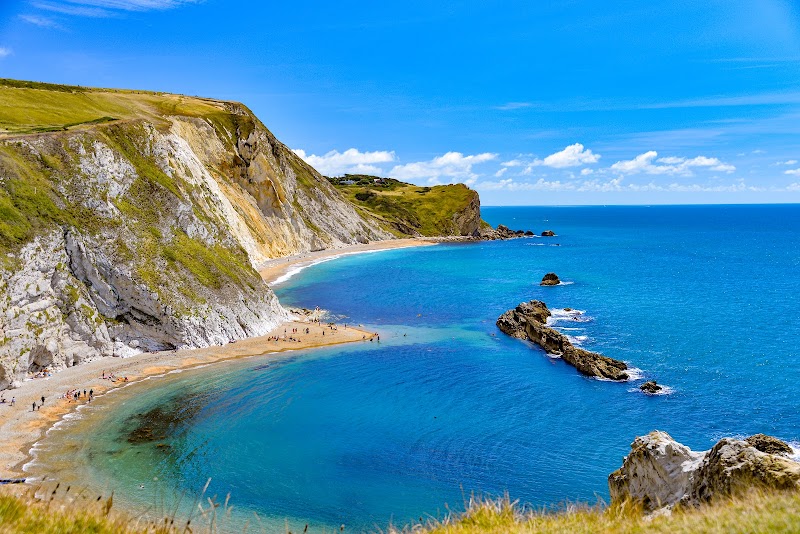
Exploring the Ross-on-Wye Walking Festival: Trails, Tips, and Terrain
The Ross-on-Wye Walking Festival invites hikers to explore varied trails across Herefordshire’s dramatic Wye Valley. Whether it’s gentle riverside strolls or invigorating hill climbs, this festival combines stunning scenery with a well-organized walking experience perfect for all skill levels.
Wear Reliable Footwear
Opt for waterproof hiking boots with solid grip to handle mixed terrain, from forest mud to stony paths, ensuring comfort and safety throughout the festival.
Stay Hydrated on Longer Walks
Bring at least one liter of water per person, especially for hikes over 7 miles to maintain energy levels and prevent dehydration.
Check Weather Forecasts Regularly
Conditions can change quickly around the Wye Valley. Dress in layers with a waterproof shell and be prepared for showers or sun.
Bring a Map or GPS
While festival routes are well marked, having an OS Explorer 189 map or a GPS device ensures you stay on course in more remote or confusing sections.
Exploring the Ross-on-Wye Walking Festival: Trails, Tips, and Terrain
Ross-on-Wye, a vibrant county town by the River Wye in Herefordshire, England, transforms each year with its Walking Festival, inviting hikers of all stripes to engage directly with the land’s rugged charm and quiet power. Whether you’re chasing views across the sweeping Wye Valley or treading forested paths under a canopy that shifts with the season, the Festival offers a range of trails from gentle to challenging, designed to meet the expectations of both casual walkers and seasoned adventurers.
The heart of the festival beats along routes that vary from 3 miles to 13 miles. The terrain itself demands respect: expect rolling hills that push legs and lungs just enough, stretches of sharp incline that invite a steady pace, and tranquil sections where the river dares you to look deeper into its reflections. Elevation gains typically range between 150 to 450 meters, with underfoot conditions shifting from soft woodland floors—matted with leaves and occasional mud—to stony lanes that crunch beneath your boots.
Preparation is key: solid waterproof hiking boots with good tread will handle the unpredictable British weather and variable terrain. Lightweight layers paired with a waterproof jacket prepare you for the festival’s typical weather swings, whether spring showers or early summer sun. Hydration cannot be overlooked—carry at least a liter of water, especially for longer walks over seven miles.
The Festival calendar stacks walks to take advantage of the local topography in different light, offering morning starts to catch the mist curling off the river and afternoon strolls timed to hit golden hour views over the surrounding hills. Many paths pass through quiet woods alive with bird calls and the occasional rustle of deer, while others open to high ridges where the wind speaks clearly and the landscape stretches knowingly toward Wales to the west and the Malvern Hills to the east.
Weather can turn swiftly, which adds an edge of earnestness to every step—this landscape does not yield itself lightly but rewards those who come with respect and attentiveness. Map reading skills are handy; festival guides provide excellent navigational support, but carrying an OS Explorer 189 map or a GPS device is strongly recommended.
Ross-on-Wye itself is practical for walkers: quaint shops stock provisions, and local pubs serve warm food and drink, perfect for post-walk recovery. Public transport links from Hereford and Gloucester make arrival and departure straightforward.
Walking the Ross-on-Wye Festival is more than a casual foot journey—it’s an engagement with a land fiercely itself, where river currents push forward, woods whisper stories, and hills offer challenge and embrace. This festival proves that walking isn’t just movement; it’s a conversation with nature, measured step by step.
Nearby Trips
All Adventures
Boat Charters
Water Activities
Adventures near Ross-on-Wye, Herefordshire, England
Discover the unique and memorable adventures that make Ross-on-Wye, Herefordshire, England special.
Frequently Asked Questions
Are the trails suitable for children or beginners?
Yes, the festival offers several shorter and relatively flat routes ideal for families and casual walkers, including riverside paths with minimal elevation.
Is the festival accessible by public transport?
Ross-on-Wye is well connected by bus from Hereford and Gloucester. The town’s compact size makes it easy to reach start points and enjoy local accommodations.
What wildlife can I expect to see during the walks?
Expect to spot buzzards soaring above, kingfishers darting by the river, and perhaps deer hiding quietly among the woods, especially in early morning or evening.
Are dogs allowed on festival walks?
Dogs are welcome on most routes provided they are kept on a lead to avoid disturbing livestock and wildlife.
Is parking available near the trailheads?
Several car parks exist within Ross-on-Wye town center and at key trail access points; however, spaces can fill during peak festival days.
Can I join walks without pre-booking?
While some group walks require registration, many trails are self-guided with maps available; early booking is recommended for guided events.
Recommended Gear
Waterproof Hiking Boots
Keeps feet dry and supported across wet, uneven terrain typical of Wye Valley trails.
Layered Clothing System
Allows adjustment to rapid weather changes, from cool mornings to warm afternoons or sudden rain.
Hydration Pack or Water Bottles
Ensures sufficient hydration during longer or warmer walks.
OS Explorer 189 Map or GPS Unit
Helps maintain orientation on less obvious segments of festival routes.
Local Insights
Hidden Gems
- "The Panorama Viewpoint near Wilton, offering sweeping vistas over the Valley and Welsh hills beyond"
- "Lower Lydbrook Woods, a lesser-known forest section with tranquil streams and diverse birdlife"
Wildlife
- "Kingfisher"
- "Red kite"
- "Roe deer"
- "Woodpeckers"
History
"Ross-on-Wye played a pivotal role in popularizing recreational walking in the 18th century, credited with helping spark the ‘discovery’ of the Wye Valley as one of Britain’s first tourist destinations."
